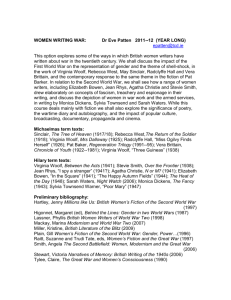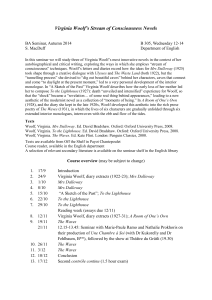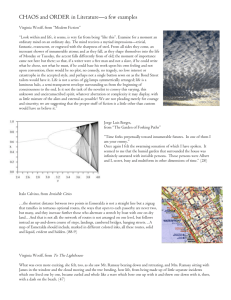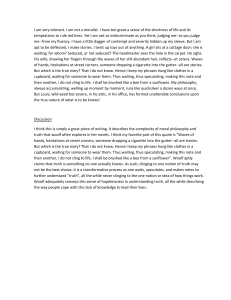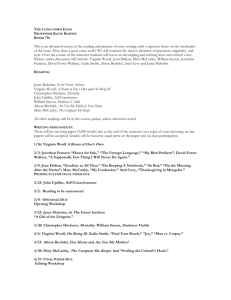Word format
advertisement
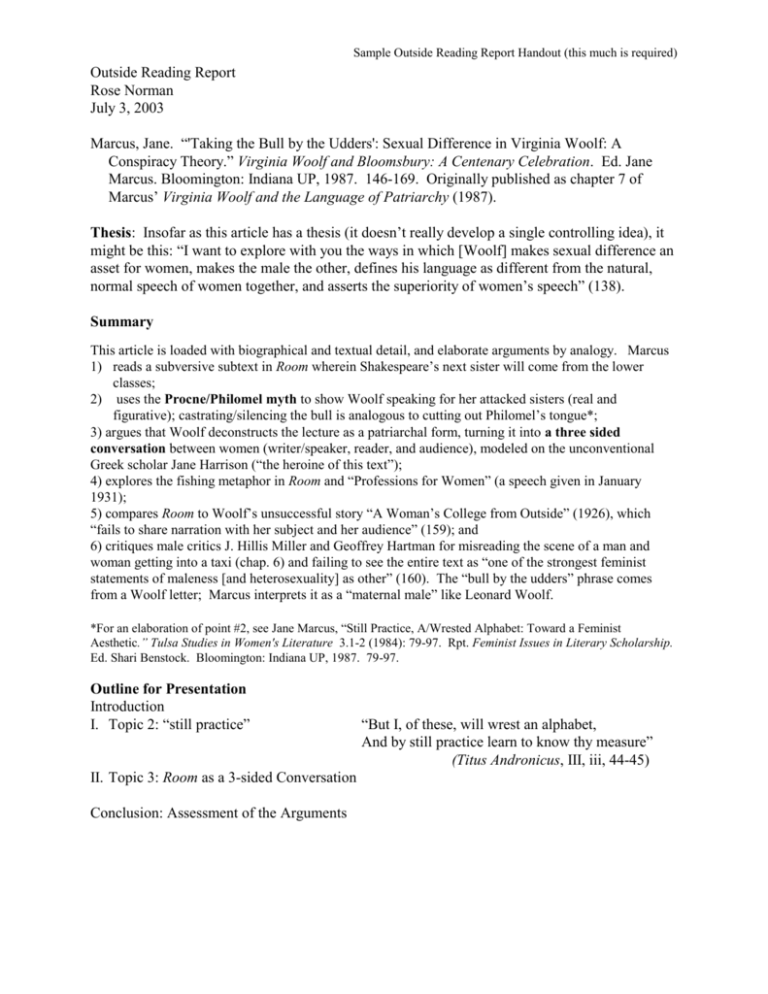
Sample Outside Reading Report Handout (this much is required) Outside Reading Report Rose Norman July 3, 2003 Marcus, Jane. “'Taking the Bull by the Udders': Sexual Difference in Virginia Woolf: A Conspiracy Theory.” Virginia Woolf and Bloomsbury: A Centenary Celebration. Ed. Jane Marcus. Bloomington: Indiana UP, 1987. 146-169. Originally published as chapter 7 of Marcus’ Virginia Woolf and the Language of Patriarchy (1987). Thesis: Insofar as this article has a thesis (it doesn’t really develop a single controlling idea), it might be this: “I want to explore with you the ways in which [Woolf] makes sexual difference an asset for women, makes the male the other, defines his language as different from the natural, normal speech of women together, and asserts the superiority of women’s speech” (138). Summary This article is loaded with biographical and textual detail, and elaborate arguments by analogy. Marcus 1) reads a subversive subtext in Room wherein Shakespeare’s next sister will come from the lower classes; 2) uses the Procne/Philomel myth to show Woolf speaking for her attacked sisters (real and figurative); castrating/silencing the bull is analogous to cutting out Philomel’s tongue*; 3) argues that Woolf deconstructs the lecture as a patriarchal form, turning it into a three sided conversation between women (writer/speaker, reader, and audience), modeled on the unconventional Greek scholar Jane Harrison (“the heroine of this text”); 4) explores the fishing metaphor in Room and “Professions for Women” (a speech given in January 1931); 5) compares Room to Woolf’s unsuccessful story “A Woman’s College from Outside” (1926), which “fails to share narration with her subject and her audience” (159); and 6) critiques male critics J. Hillis Miller and Geoffrey Hartman for misreading the scene of a man and woman getting into a taxi (chap. 6) and failing to see the entire text as “one of the strongest feminist statements of maleness [and heterosexuality] as other” (160). The “bull by the udders” phrase comes from a Woolf letter; Marcus interprets it as a “maternal male” like Leonard Woolf. *For an elaboration of point #2, see Jane Marcus, “Still Practice, A/Wrested Alphabet: Toward a Feminist Aesthetic.” Tulsa Studies in Women's Literature 3.1-2 (1984): 79-97. Rpt. Feminist Issues in Literary Scholarship. Ed. Shari Benstock. Bloomington: Indiana UP, 1987. 79-97. Outline for Presentation Introduction I. Topic 2: “still practice” II. Topic 3: Room as a 3-sided Conversation Conclusion: Assessment of the Arguments “But I, of these, will wrest an alphabet, And by still practice learn to know thy measure” (Titus Andronicus, III, iii, 44-45)
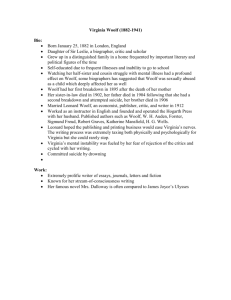
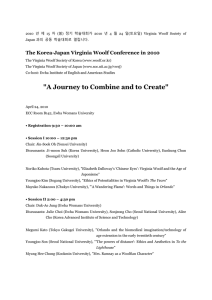
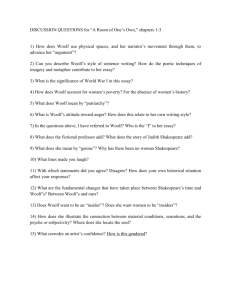
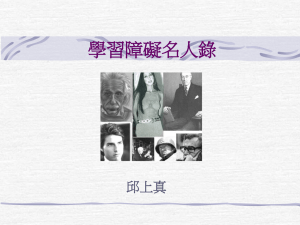
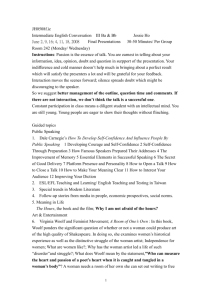
![Special Author: Woolf [DOCX 360.06KB]](http://s3.studylib.net/store/data/006596973_1-e40a8ca5d1b3c6087fa6387124828409-300x300.png)
